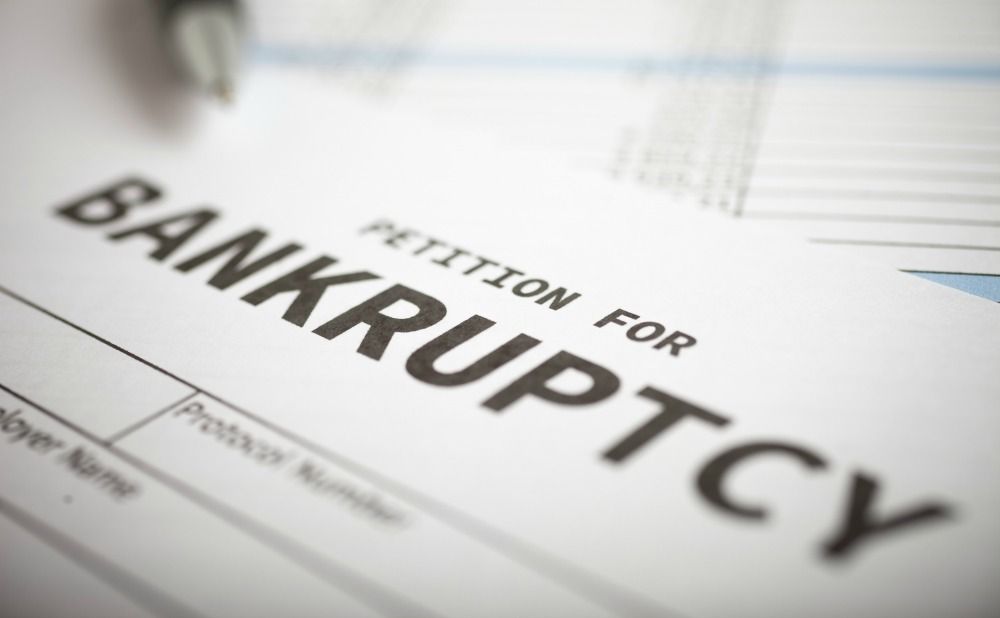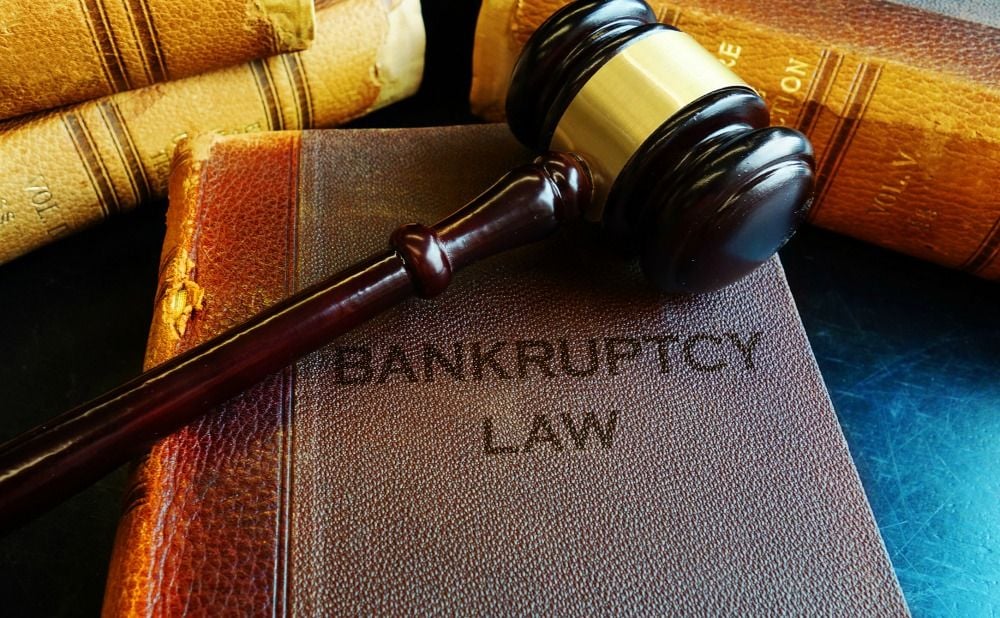
The thought of your Philadelphia tenant filing for bankruptcy no doubt brings to mind some very serious situations that you do not want to deal with.
For example, if you have a tenant in your property that is claiming bankruptcy, how can you expect them to pay you rent each month?
Worse, perhaps they have timed their bankruptcy just right so that you cannot legally evict them, and get paying tenants in your property.
So, what are you to do?
If you own a Philadelphia rental property and are searching for some guidance when it comes to a tenant filing bankruptcy, read on.
Today we will discuss exactly what bankruptcy is, and some things you should (and shouldn’t) do if your tenant decides to file for bankruptcy while residing in your property.
What is Bankruptcy?

Bankruptcy is a process allowing the courts to examine whether to relieve a person of their outstanding debts, so that they are no longer legally required to pay them.
It is a way for someone drowning in debt to wipe the slate clean and start over.
The most common types of bankruptcies in the United States are Chapter 7 and Chapter 13 bankruptcies.
Chapter 7
This type of bankruptcy, if granted, will release you from having to repay any of your debts.
You are allowed to keep key assets such as your home, your car (if used for work), equipment you use for work, Social Security checks, pensions, veteran’s benefits, welfare, and retirement savings.
On the other hand, things like cash, bank accounts, stock investments, coin or stamp collections, a second car, or a second home can be liquidated and used to repay some of the lenders you owe money to.
This is true even if your bankruptcy is approved and your debts are cleared.
Chapter 7 is the most common type of bankruptcy in the United States. It accounts for nearly 62% of all individual bankruptcies each year.
However, if your assets qualify you for a Chapter 13 bankruptcy, you are not allowed to file a Chapter 7.
Chapter 13
Chapter 13 bankruptcies include repaying some of your outstanding debts, while having others forgiven.
This type of bankruptcy is mainly for those who have high annual incomes, and do not qualify for a Chapter 7 bankruptcy, or for those who wish to keep all of their property.
With a Chapter 13 bankruptcy, a person’s debts may not exceed a specific threshold.
In addition, you are given a 3-5 year repayment plan. It is during this time that you must complete the repayment plan in order to have your debts fully forgiven.
What Happens When Your Philadelphia Tenant Files for Bankruptcy?

When your Philadelphia tenant files for bankruptcy, the court will issue what is called an automatic stay.
This means that all collections against a tenant must stop without the court’s permission.
This also means that you are no longer allowed to collect a monthly rent from your tenant.
Unfortunately, this means that your tenant is now a non-paying tenant, and there is nothing you can do about it.
But does this stay apply to eviction proceedings?
The Old Bankruptcy Laws
Prior to 2005, it was illegal for a property owner to initiate eviction proceedings against a tenant for non-payment of rent if the tenant had successfully started bankruptcy proceedings before a Notice to Pay or Quit was given, and the time period to pay (typically 3 days) had elapsed.
This meant that property owners had no way of recovering their loss in rent payments, and no way to replace the non-paying tenant with one that could pay. This also meant that tenants had a loophole for getting out of having to pay rent, at least for the time being.
In order to continue forward with eviction proceedings against a tenant filing bankruptcy, a property owner would have to petition the federal bankruptcy court to “lift,” or remove, the automatic stay that was in place so that they could evict the tenant.
If the court agreed to lift the stay, you were then permitted to start eviction proceedings against your tenant.
If however, you did give proper notice to your tenant, before your tenant initiated the bankruptcy filing, you were allowed to follow through with the eviction proceedings if your tenant failed to pay their rent or move out.
New Bankruptcy Laws
In 2005, President Bush signed what is called The Bankruptcy Abuse Prevention and Consumer Protection Act of 2005 in an attempt to reform the bankruptcy system.
While this law stretched across many bankruptcy situations, it most notably affected how property owners could deal with tenants that were in the midst of filing for bankruptcy.
As a way to prevent tenants from initiating automatic stays, and thus forfeiting their obligation to pay their rent, this new law stated that filing for bankruptcy would no longer delay or stop eviction proceedings.
This meant that property owners, regardless of whether their tenant was filing for bankruptcy, could now provide proper notice to pay or quit the property, and initiate an eviction if the tenant did not pay up.
Things to Avoid When Your Tenant Files for Bankruptcy

There are a few things you should refrain from doing if you find out that your Philadelphia tenant is filing for bankruptcy:
- Using the Tenant’s Security Deposit. Using a tenant’s security deposit to cover your losses in rent will amount to you being paid before all other creditors owed, which is not allowed. The courts decide who is paid what, and when. Do not take it upon yourself to pay yourself (as tempting as that may be), because it is against the law.
- Using New Rent Amounts to “Pay-off” Delinquent Rent. If your tenant was behind on rent, underwent the entire bankruptcy proceeding, and decided to keep the lease intact as a provision of their bankruptcy terms, you cannot use their rent payments to make up for old ones that went unpaid. This is a major violation of bankruptcy law, and you could find yourself in a lot of legal trouble. If your tenant decides to stay in the property and pick up paying the rent moving forward, talk to your bankruptcy attorney about how to recoup losses from missed rent payments.
What You Should Do When a Tenant Files for Bankruptcy
While there are several things you are not allowed to do while a tenant is undergoing a bankruptcy, there are things you can do to help remedy the situation.
- Manage untimely rents immediately, initiating eviction notices once a tenant fails to pay
- Obtain bankruptcy counsel as soon as your tenant files to protect yourself and learn your rights
- Do not accept partial rent payments after a Notice to Pay or Quit was given if you suspect a tenant is about to file for bankruptcy – doing so reinstates the lease agreement, and you must again provide proper notice to pay in order to move forward with an eviction
Lastly, learning the tenant’s options for dealing with the lease agreement after a bankruptcy filing has been completed is a great way to prepare for the aftermath of a bankruptcy situation:
- Lease Rejection. The tenant may wish to reject the lease going forward, so long as the bankruptcy court and property owner are properly notified. The tenant is then no longer required to pay rent. Any unpaid rent becomes unsecured debt of the bankruptcy estate, meaning it has been forgiven and you are out of luck.
- Lease is Assumed. Your tenant may resume the lease after asking for permission from the bankruptcy court. They then have to be able to meet all prior obligations (g. unpaid rent) and any future obligations, meaning they must be able to pay the rent going forward.
- Lease Assignment. Your tenant may choose to assign the lease to another party. In order for this to work, the tenant must ask the court for permission, pay all past due rent, and ensure the new party will be able to fulfill the lease agreement.
Dealing with a tenant that is on the brink of filing for bankruptcy is a frightening thing.
There is a lot at stake when it comes to a tenant that stops paying to live in your rental property.
Luckily, there are some solid laws in place protecting property owners from tenants that find themselves facing a wall of debt.
If you own property in the Philadelphia region and do not want to deal with tenants filing bankruptcy, contact Bay Management Group today. Not only are we skilled in placing high quality tenants in your properties, we have strict rent collection procedures in place to evict non-paying tenants right away.
Don’t deal with the hassle of understanding bankruptcy law as it applies to your rental property. Instead, employ us to help you every step of the way, should the worst happen.
